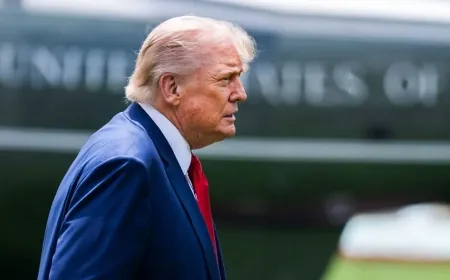Oil Prices Climb Amid Reports India May Reduce Russian Crude Purchases
Brent rises to $62.45 as traders monitor India’s potential cut in Russian crude imports; refinery disruptions in Russia add pressure to global oil supply.

Oil futures rose on Thursday as traders reacted to reports that India may scale back its purchases of Russian crude, a shift that could tighten supplies and redirect global demand.
By 1135 GMT, Brent crude futures were up 54 cents, or 0.87%, at $62.45 per barrel, while U.S. West Texas Intermediate (WTI) futures rose 56 cents, or 0.96%, to $58.83 per barrel. The gains came after both benchmarks fell to levels not seen since early May, following renewed concerns over U.S.-China trade tensions.
U.S. President Donald Trump said on Wednesday that Prime Minister Narendra Modi had committed to halting Russian oil imports, which currently account for about one-third of India’s crude supply. Reuters sources familiar with Indian refiners noted that some companies are preparing for a gradual reduction in Russian shipments over the coming months.
Tony Sycamore, market analyst at IG, described the potential cut as supportive for oil prices, noting that removing India as a major buyer could reduce global Russian crude availability.
India, however, issued a statement emphasizing that its two main priorities are ensuring energy price stability and maintaining consistent supply, without confirming Trump’s remarks. Russia, meanwhile, expressed confidence that its energy cooperation with India would continue uninterrupted.
Russian refinery output has also been affected by Ukrainian drone attacks, which have disrupted operations. The Saratov refinery was targeted overnight, and Rosneft’s Ufaneftekhim refinery halted one of four crude processing units following Wednesday’s attack. Russia’s Energy Minister, Alexander Novak, said scheduled maintenance at some refineries would be postponed to maintain output.
Analysts say that the combination of reduced Indian purchases and disrupted refinery operations could limit the supply of Russian crude, helping to support global oil prices. PVM analyst Tamas Varga commented, “The plummeting availability of Russian products and crude oil should set a floor under the market. Brent’s April low of $58.40 per barrel may be difficult to reach again.”
In other developments, U.S. Treasury Secretary Scott Bessent told Japanese Finance Minister Katsunobu Kato that Washington expects Japan to phase out imports of Russian energy, although Japan imports only a small portion of Russian crude. Meanwhile, the UK government implemented new sanctions directly targeting Russia’s energy sector. The measures affect Rosneft and Lukoil, four oil terminals, 44 tankers in the “shadow fleet,” and Nayara Energy Limited, a Russian-owned refinery in India.
Traders are watching closely as any sustained reduction in Russian crude could shift demand to alternative suppliers, including the Middle East, Africa, and the Americas, potentially affecting pricing and refining strategies worldwide.
Despite these uncertainties, demand remains relatively stable in Asia as economies recover, though analysts warn that geopolitical tensions and refinery disruptions are likely to keep oil markets sensitive in the short term.
Also Read: OPEC+ Approves 137,000-Barrel Daily Oil Increase for November































































